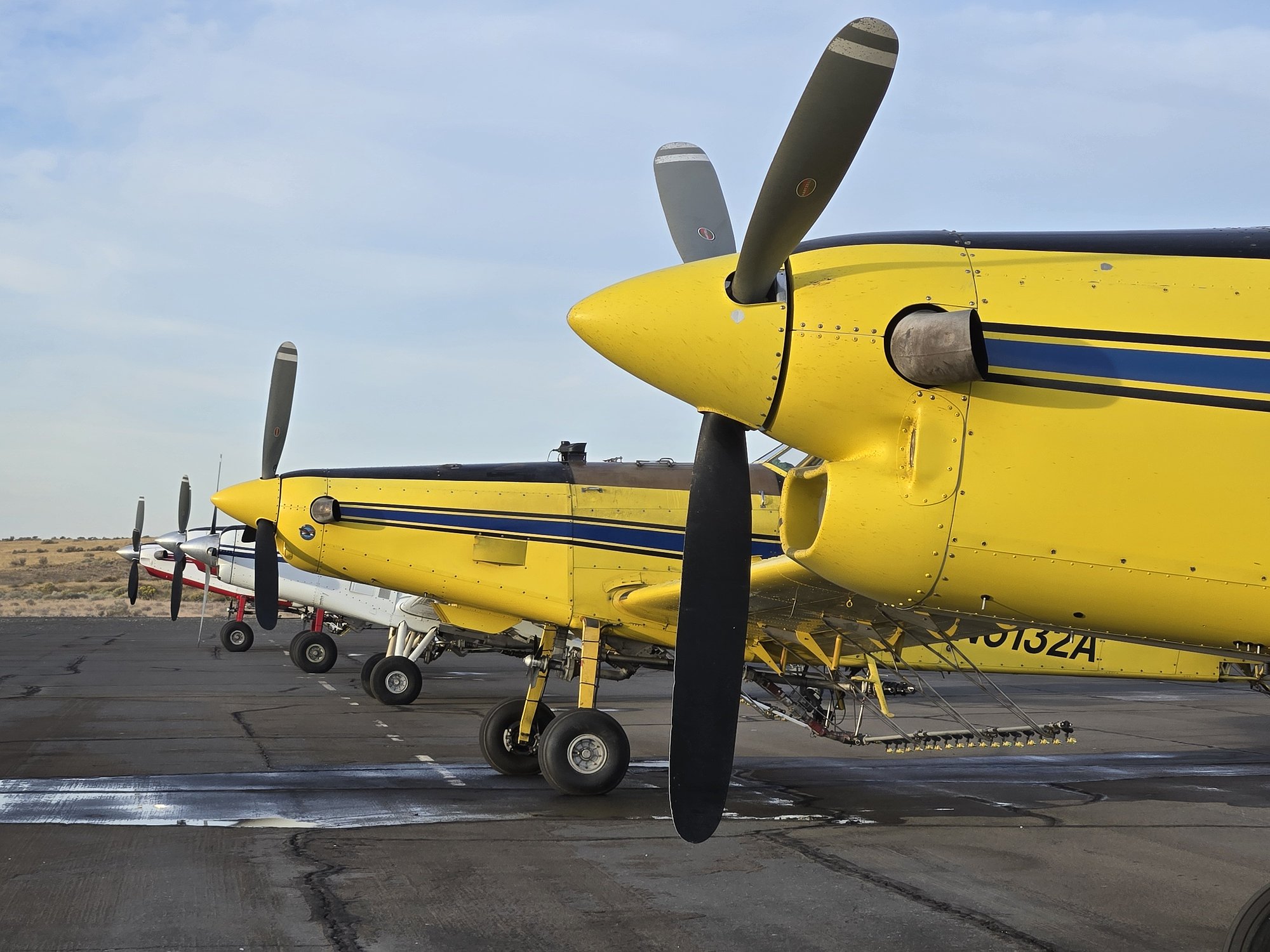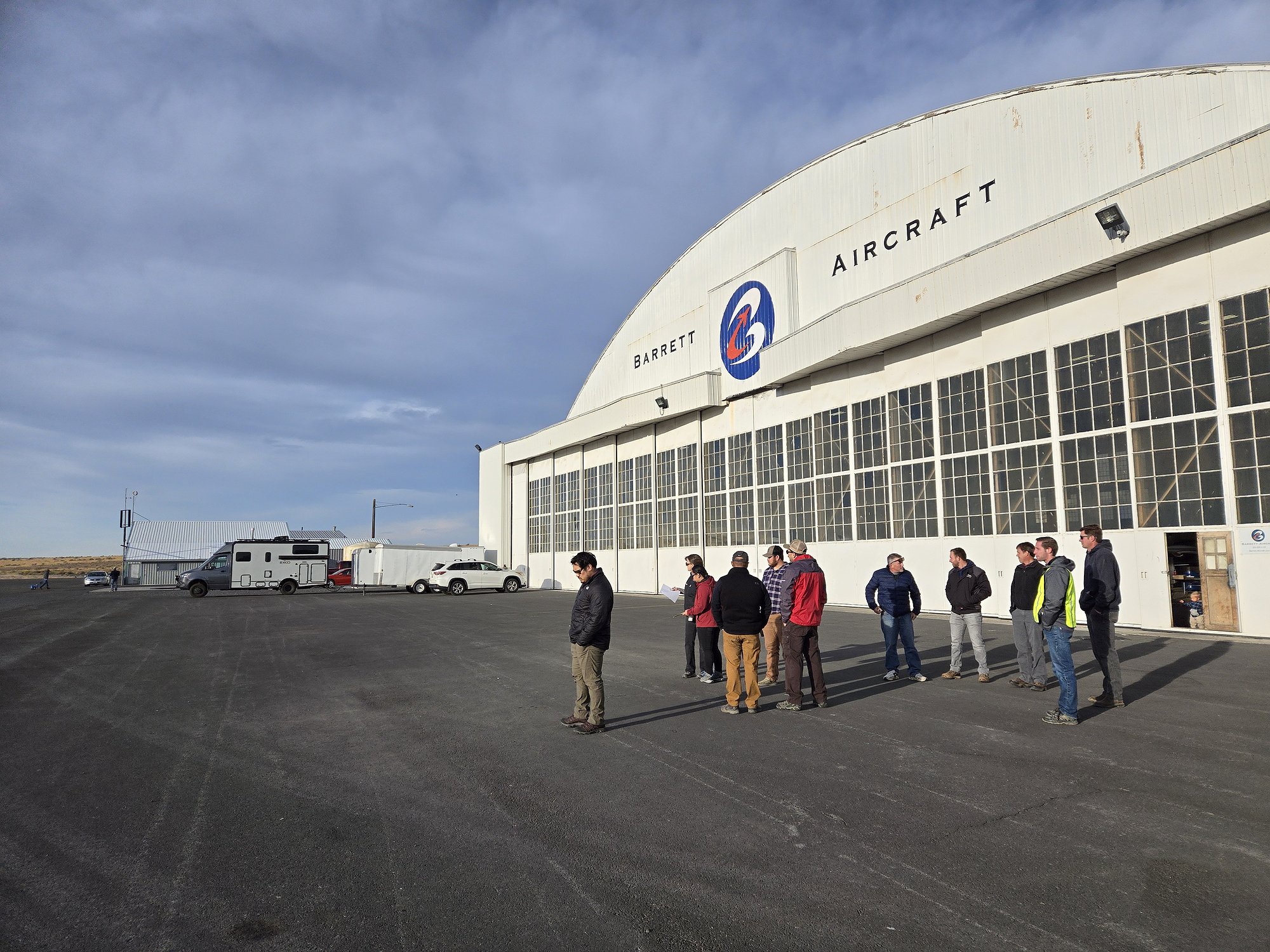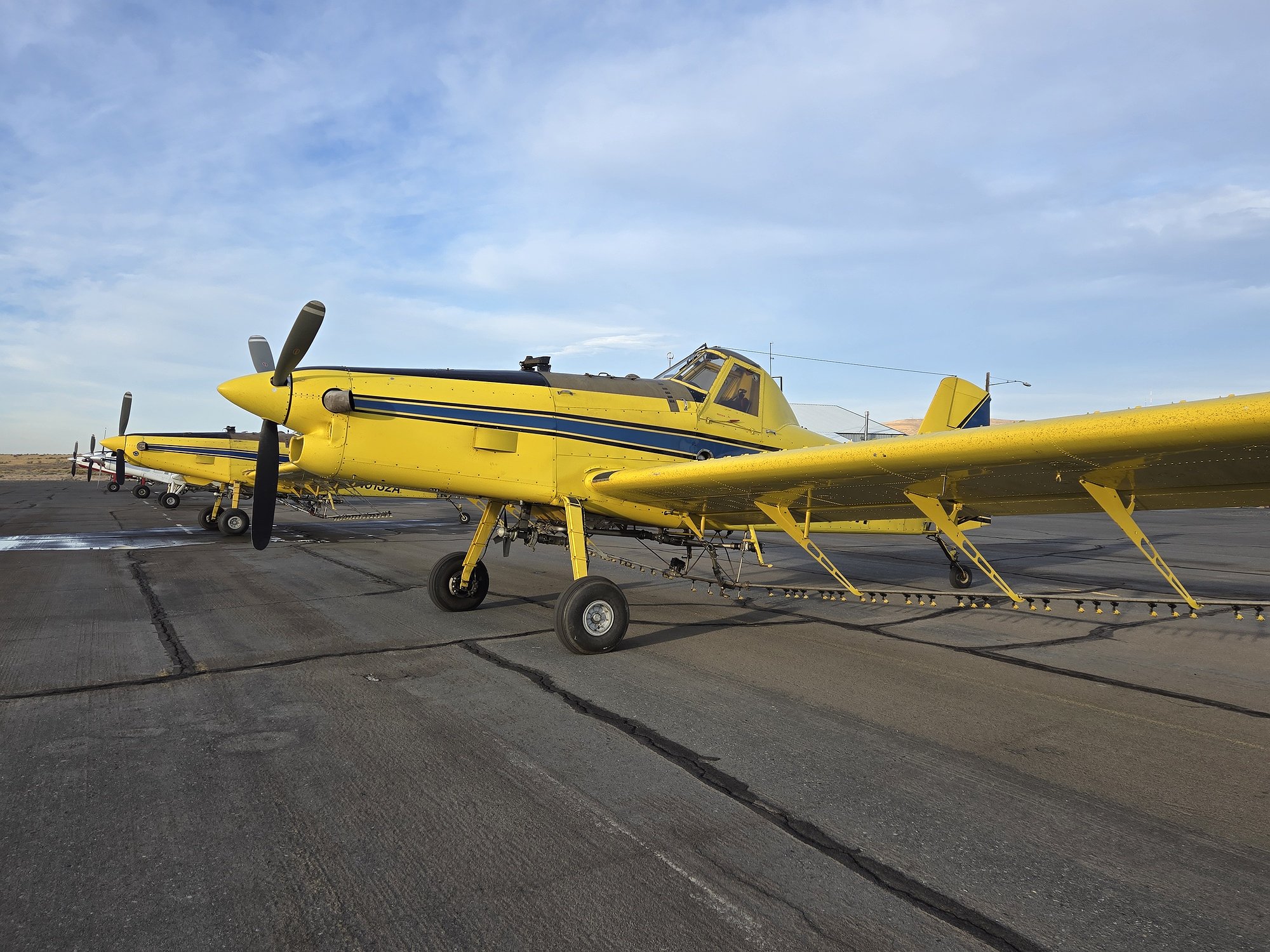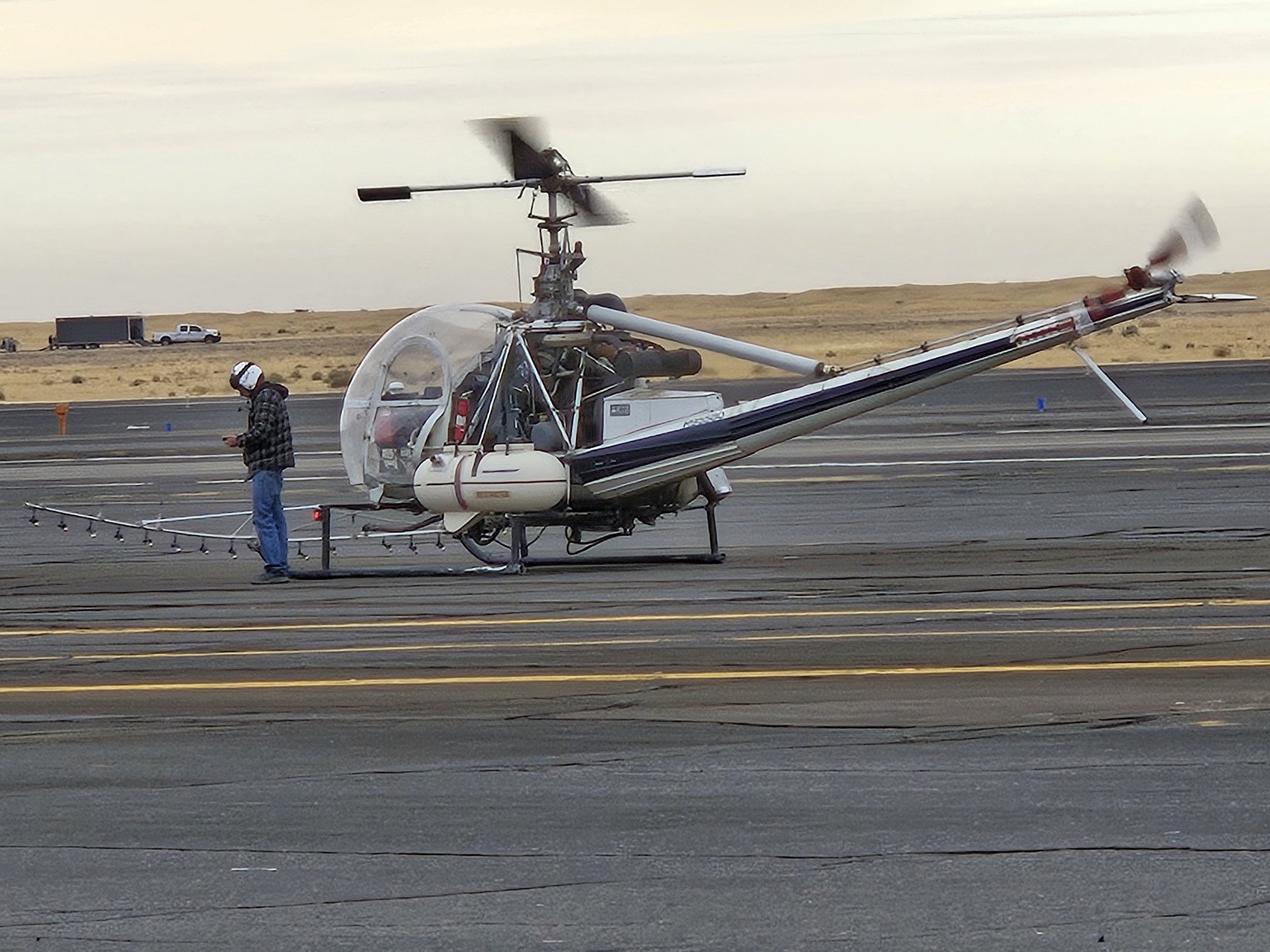Port of Ephrata hosts fly-in event, seeks more events
R. HANS MILLER | Hagadone News Network | UPDATED 1 year, 4 months AGO
Managing Editor Rob Miller is a 4-year U.S. Army veteran who grew up in Western Montana in a community about the size of Soap Lake. An honors graduate of Texas State University, he enjoys spending time with his wife, Brandee, and their three dogs, Draco, Pepper and Cinnamon. He has one son, William. During his free time, he enjoys photography, video games, reading and working on the house he and his wife bought in Ephrata. He is passionate about the First Amendment and educating communities. | October 10, 2024 1:25 AM
EPHRATA — The Association of Washington Aerial Applicators buzzed into Ephrata on Friday to network and recertify with the Federal Aviation Administration. AWAA representative Anthony Root said the event, hosted by the port of Ephrata, allowed the organization’s members to show their professionalism and expertise.
“These guys are experts,” Root said. “... We’re experts at it, because we do it all day every day.”
Root was explaining the process for recertification as aerial applicators. There’s more to crop dusting than just diving and hitting a button to release pesticides or herbicides. The recertification process hones skills and fine-tunes equipment to ensure that sprays are applied evenly and accurately in a way that is beneficial to crops while avoiding harm to the environment.
During certification, pilots in small airplanes, helicopters and even drones spray pink fluid onto a string and some cards arranged in a very specific pattern. An analyst then reviews the saturation along the string and cards to ensure those patterns are precise and even. The process helps the pilots fine-tune their equipment and ensures efficient use of whatever solution is being sprayed. This helps prevent damage to crops and soil and keeps use of such chemicals to a minimum, saving money and preserving the environment, Root said.
Port of Ephrata Executive Director David Lanman said the fly-in event is just one part of the effort to bring more traffic to the port. He’s also looking at other events that bring more attention to Ephrata and the opportunities the port and city offer visitors and businesses. The idea is to use the port to build up the city’s economy.
Given the FAA’s oversite of the port’s airport, Lanman said the events have to be aviation-related and not hinder the use of the airport itself.
It also has to be an event that fits Ephrata’s needs and capabilities, he said. The Reno Air Races had considered the Ephrata airport for events, but the event could have brought in thousands, and Ephrata doesn’t necessarily have the hotels and motels to host that large of an attraction.
The port is continuing to recruit for events and permanent residents in its warehouses, and Lanman hopes to reopen the rail station and bring in corporate tenants.
“We’ll get there,” Lanman said. “It’s a slow process to get the reputation of Ephrata changed. Bit by bit, over time, people will start realizing that we’re open for business.”
 Propellers on aircraft can cause a variance in the manner that herbicides, pesticides and similar farming aids are distributed by aircraft. The props can cause a swirling effect in the air directly beneath the aircraft. The issue can be mitigated by adjusting nozzles and other factors on the dispensing equipment under the aircraft.
Propellers on aircraft can cause a variance in the manner that herbicides, pesticides and similar farming aids are distributed by aircraft. The props can cause a swirling effect in the air directly beneath the aircraft. The issue can be mitigated by adjusting nozzles and other factors on the dispensing equipment under the aircraft.ARTICLES BY R. HANS MILLER

Suspect in 2022 murder of Moses Lake woman expected to change plea
EPHRATA — Juan Gastelum, 31, of Hermiston, Ore., the suspect in the March 2022 killing of Yanira Cedillos, is expected to change his current plea of not guilty to a guilty plea. Prosecutors in the case have requested that a plea change hearing be set for March 3, according to court documents.

Counselors help students plan ahead at Ephrata High
EPHRATA — Planning for the future isn’t something freshmen in high school gravitate toward, but the four guidance counselors at Ephrata High School point them in the right direction to get their futures planned.

Multiple projects coming to Ephrata in ‘26
EPHRATA — Multiple civic projects are coming to Ephrata this year as spring starts to waive at us from the not-too-distant future. Park upgrades, sports facility improvements and roadway upgrades are among them, according to Ephrata City Administrator Ray Towry.








